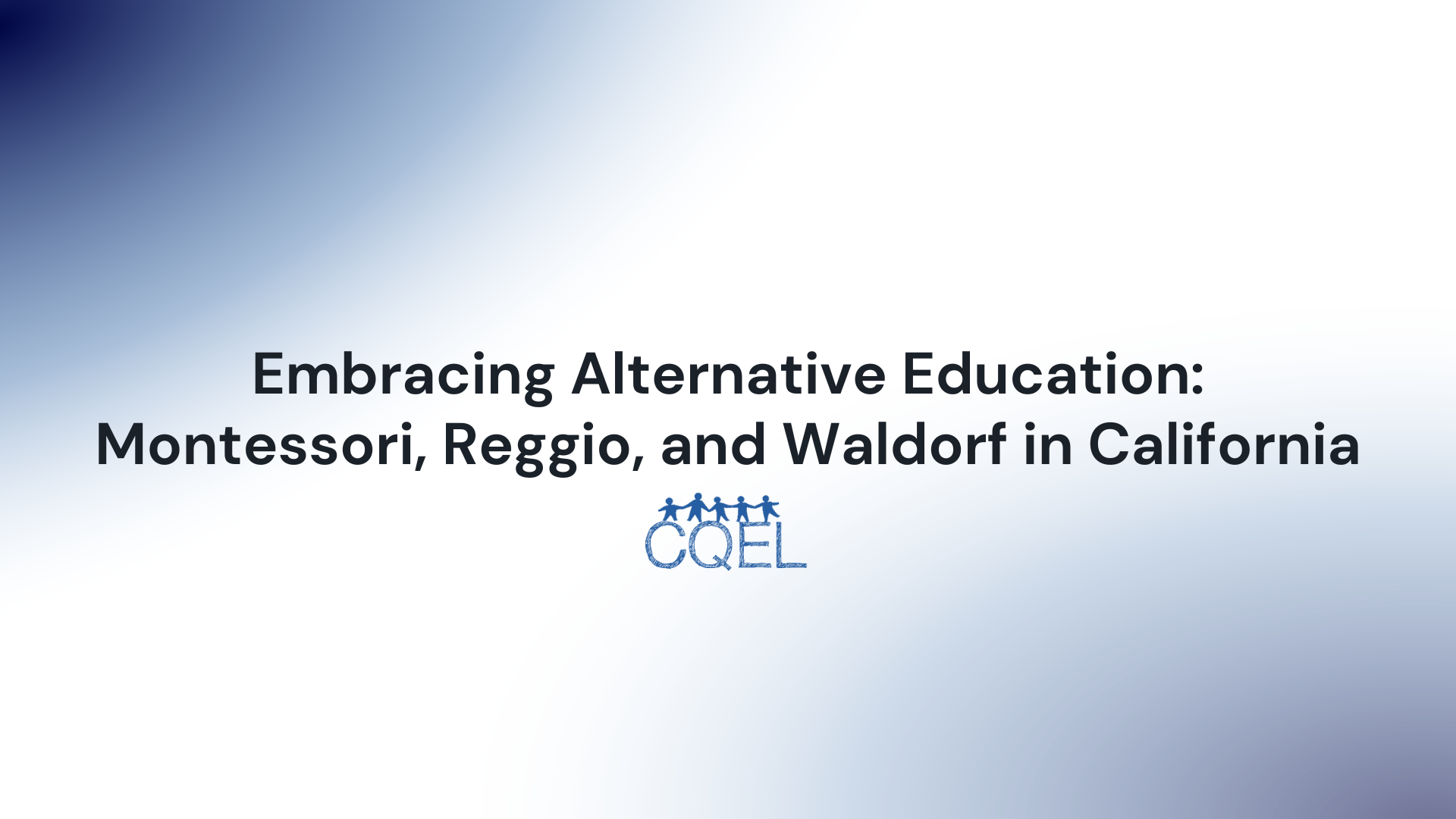Embracing Alternative Education: Montessori, Reggio, and Waldorf in California
Childcare providers in the Golden State are increasingly exploring and implementing alternative education methods. Three of these methods—Montessori, Reggio Emilia, and Waldorf—have gained significant traction, redefining how children learn, play, and grow.

California has long been a trailblazer in educational innovation, and that holds true in early childhood education. Childcare providers in the Golden State are increasingly exploring and implementing alternative education methods. Three of these methods—Montessori, Reggio Emilia, and Waldorf—have gained significant traction, redefining how children learn, play, and grow.
The Montessori Approach: Guided Self-Direction
Developed by Maria Montessori, this method respects children's natural learning processes, providing an environment where children freely choose from a range of activities. Educators act as guides rather than instructors, fostering a sense of independence, exploration, and self-direction in children. The American Montessori Society offers resources on starting a Montessori program, and Montessori Foundation provides information on training and certification.
Reggio Emilia: Education as a Collaborative Process
Originating in Italy, the Reggio Emilia approach views education as a collaborative process. Children are co-learners, teachers are facilitators, and parents are active partners. Emphasis is placed on expressive arts and project-based learning, with the belief that children learn best through social interaction and direct engagement with the world around them. The North American Reggio Emilia Alliance offers a wealth of information on this approach.
Waldorf Education: Nurturing the Whole Child
Rudolf Steiner’s Waldorf method places emphasis on imaginative play, artistic expression, and experiential learning. It aims to develop children's intellectual, artistic, and practical skills in an integrated and holistic manner. The rhythm of life and natural cycles play a central role, with seasonal activities and festivals a common feature of Waldorf schools. For those interested in the Waldorf method, the Association of Waldorf Schools of North America provides resources on implementing this philosophy.
Choosing the Right Approach
Deciding which alternative educational method best suits a childcare center involves assessing your values, resources, and the needs of your community. The key is to find a balance that best aligns with your goals and the developmental needs of the children in your care.
Continuing Education for Childcare Providers
Regardless of the approach you choose, ongoing education is essential. Organizations such as The California Association for the Education of Young Children offer resources and professional development opportunities to support educators in delivering high-quality childcare.
Relevant Links:
- The American Montessori Society
- Montessori Foundation
- North American Reggio Emilia Alliance
- Association of Waldorf Schools of North America
- California Association for the Education of Young Children
California’s early childhood educators are embracing alternative educational philosophies to foster dynamic, responsive, and engaging learning environments. By doing so, they are not only shaping the future of education but also positively influencing the lives of countless children.
